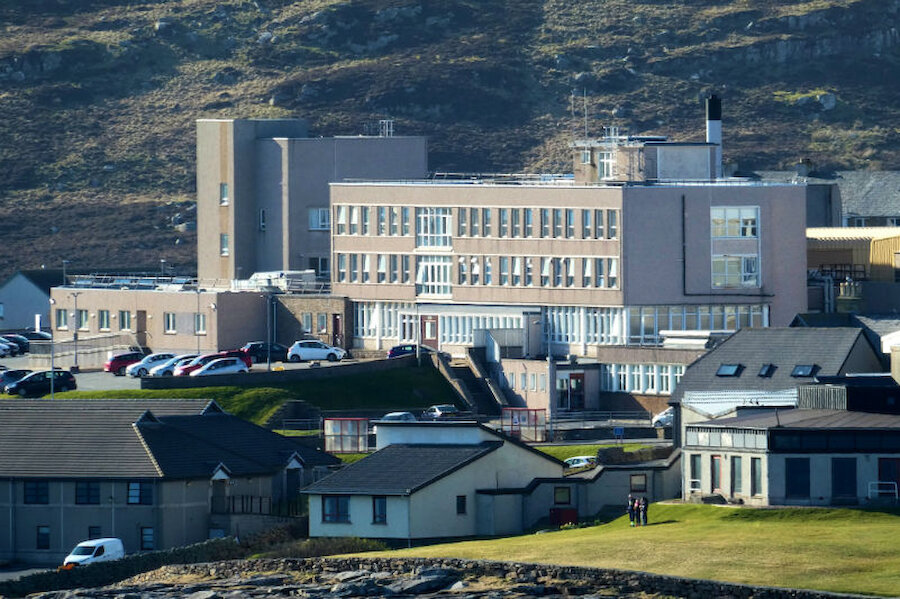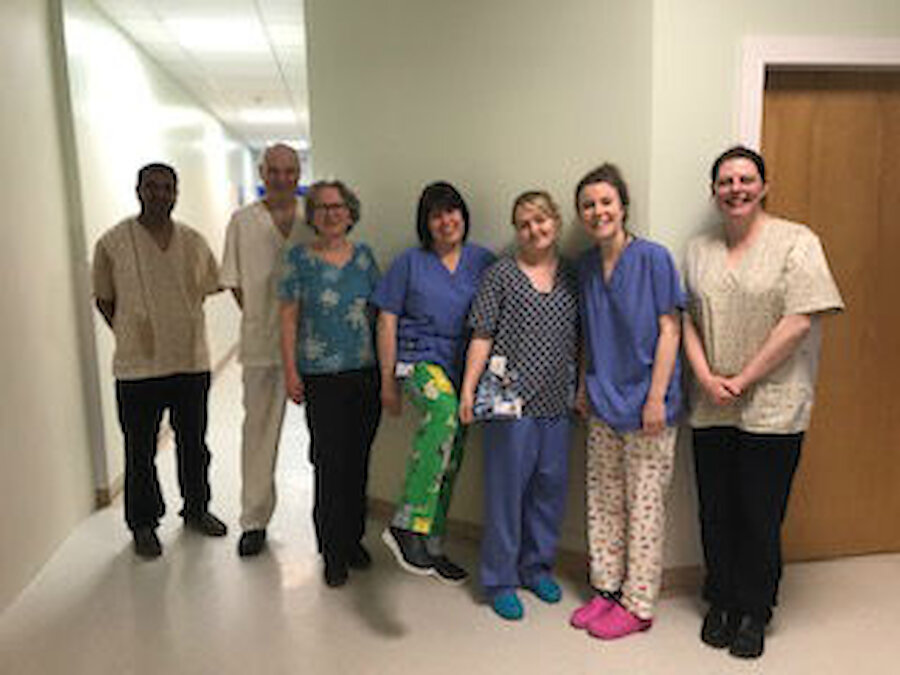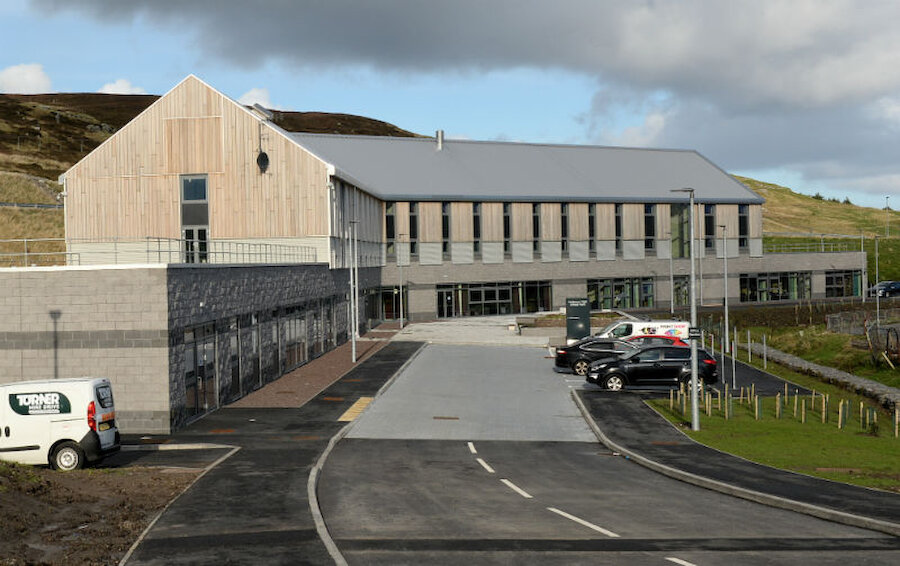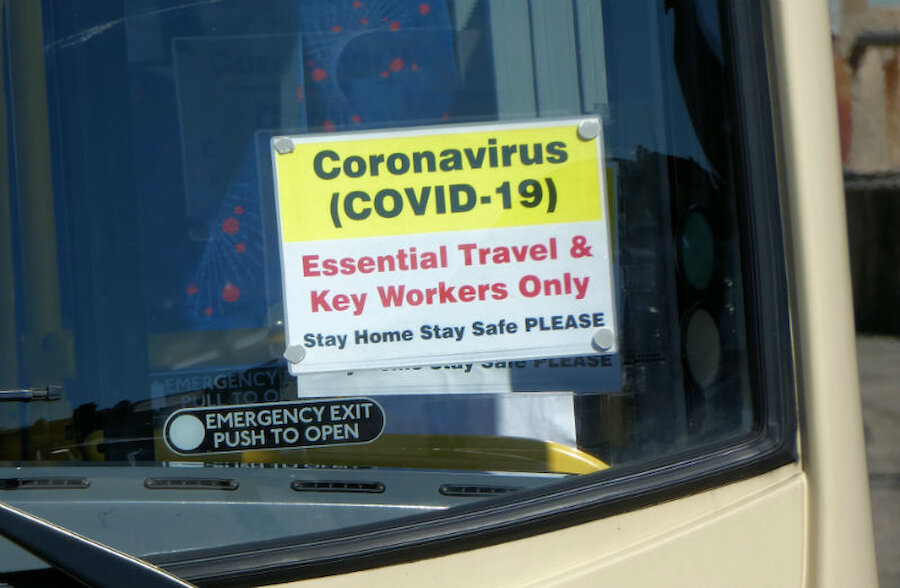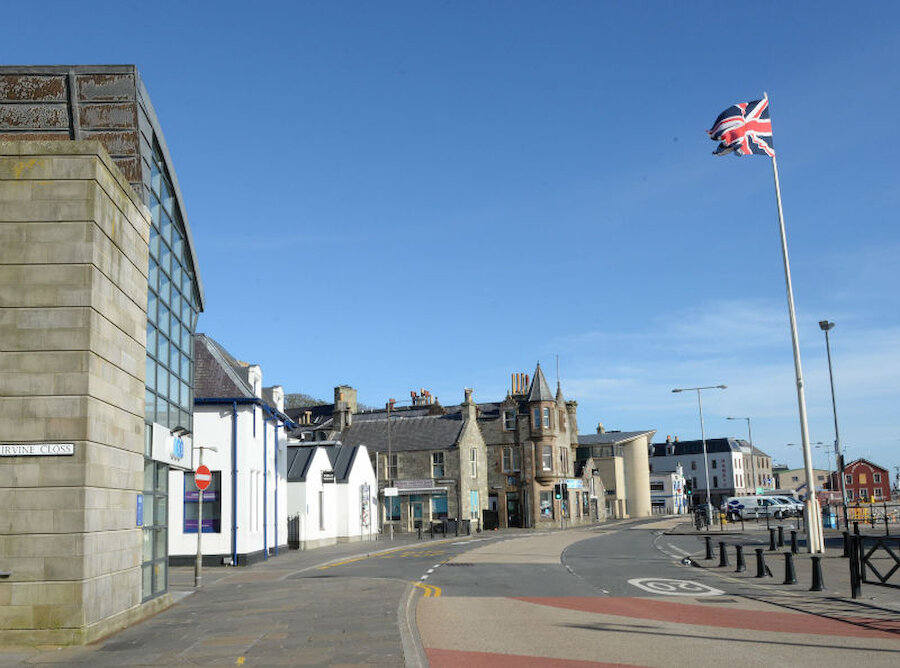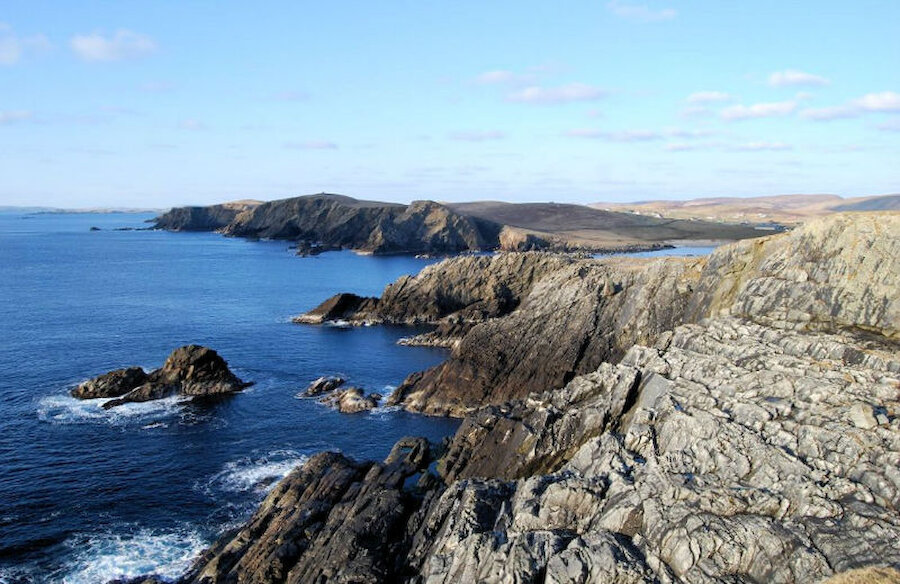The business response…
By the third week in March, when the original couple who contracted Covid-19 emerged from quarantine, fully recovered, Shetland shops and restaurants were closing down, like The Dowry café-restaurant in Lerwick, which did so “with a heavy heart but in the full knowledge we’re doing the right thing.”
Others took up a new role as providers of takeaway meals; they included at least two hotels, Busta House and St Magnus Bay in the North Mainland. The bakery in the West Mainland village of Walls (Waas) reduced many of its bread prices by 10% for the duration of the crisis with the aim of helping families cope better financially.
Although the town’s two supermarkets remained busy, Lerwick was by then more or less deserted during the working day, as people obeyed the instruction to stay at home. Many staff were ‘furloughed’ and many worked from home.
Local businesses have gone out of their way to help. Smaller shops across the islands quickly began to offer both home delivery and click-and-collect services, and – as is often the case – they often managed to provide items that seemed to be in short supply in supermarkets. As happens in difficult times, people were reminded of the hugely valuable service they provide.
However, both the Coop and Tesco also adapted impressively to the new normal. Both marshalled customers effectively at busy times, in order to maintain social distancing. Where home delivery or click and collect services were available, they were heavily used.
As in the rest of the country, it will be some time before many businesses are able to re-open, but there are signs that in certain trades, for example the sale of building materials, arrangements are emerging for click and collect. Some important Shetland sectors, particularly fishing and aquaculture, are continuing to operate, albeit with some reductions in the level of activity.

